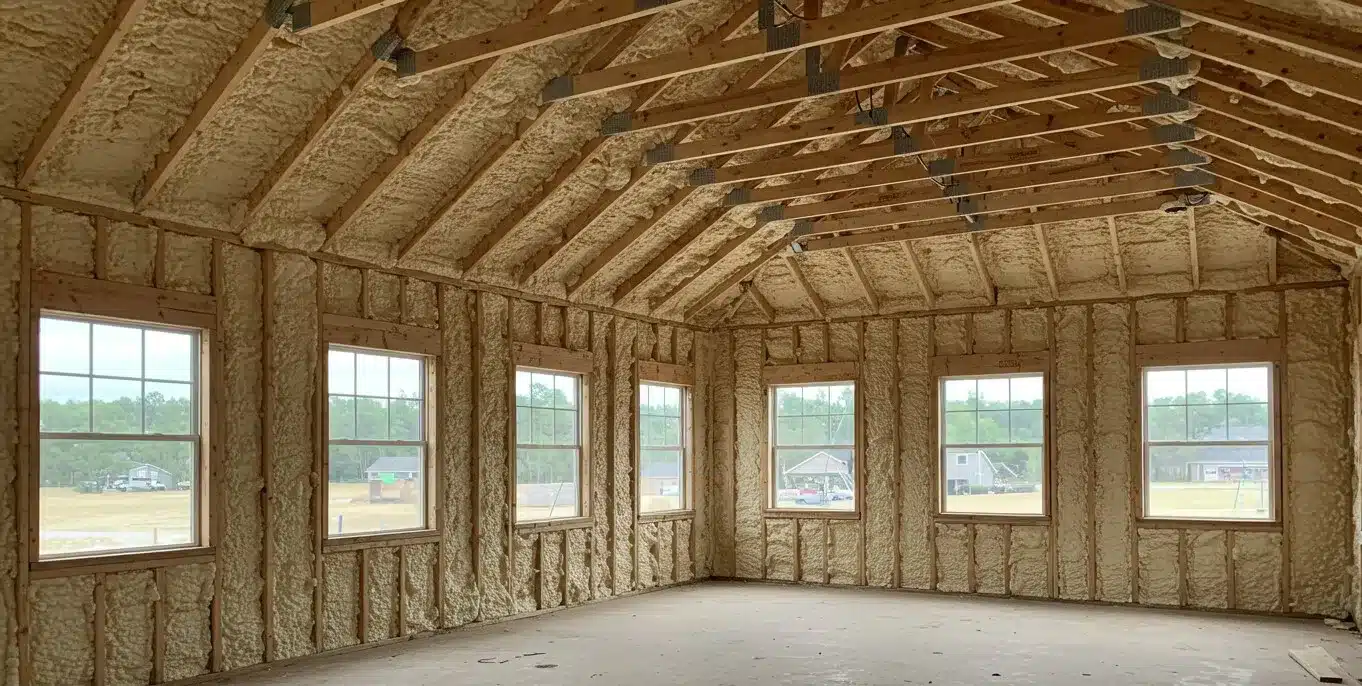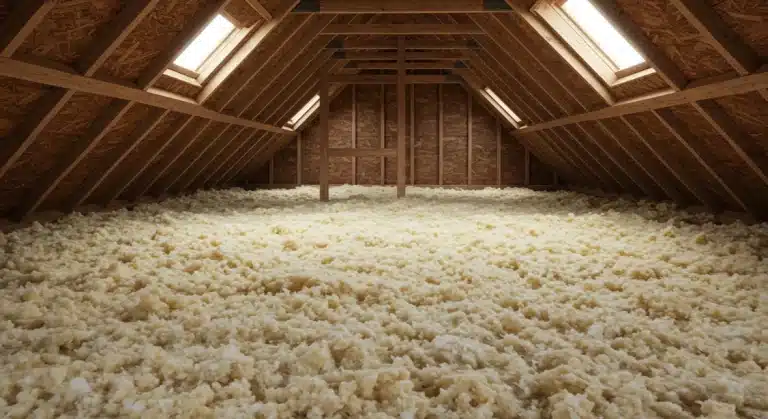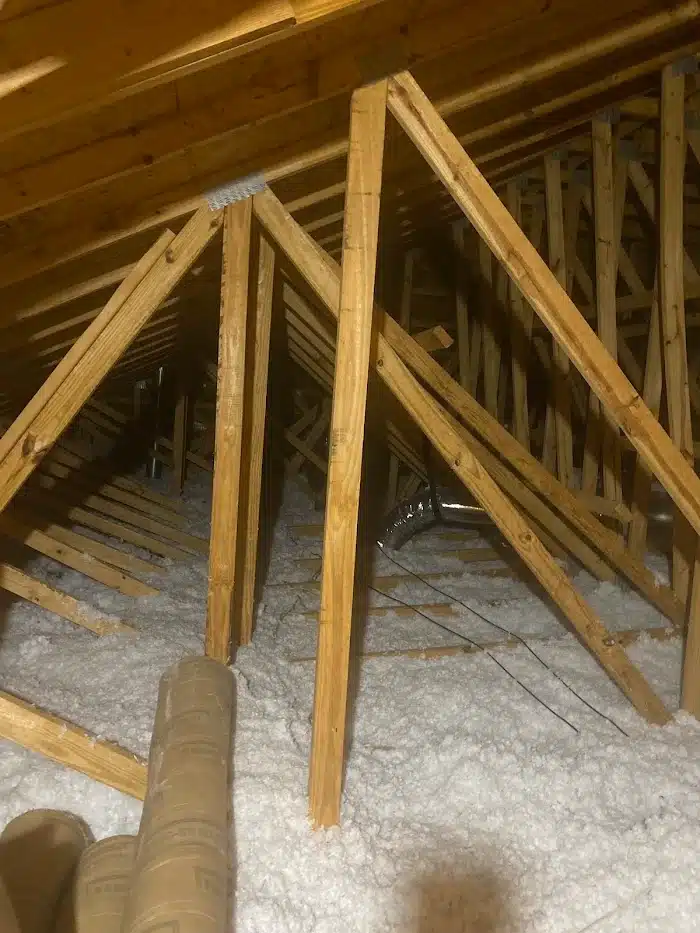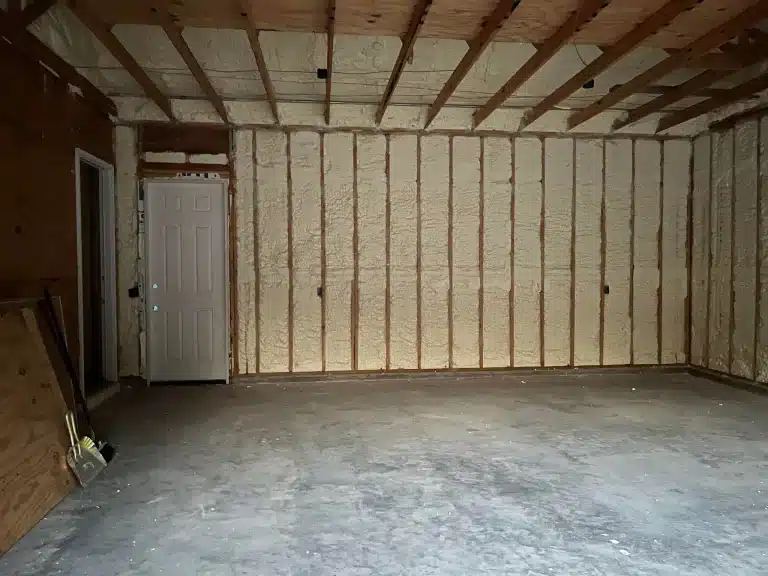Insulation is a fundamental component of any home, influencing energy efficiency, indoor comfort, and long-term cost savings. In Gulf Shores, where temperatures fluctuate and humidity levels remain high, proper insulation can significantly improve a home’s performance. This guide explores different insulation options, their benefits, and how homeowners can make informed decisions.
The Role of Insulation in Home Efficiency
Insulation acts as a barrier, reducing heat transfer between a home’s interior and exterior. Effective insulation helps maintain indoor temperatures, reduces strain on HVAC systems, and lowers energy bills. Gulf Shores homeowners must consider factors like moisture resistance, thermal performance, and material durability when selecting insulation.
Key Benefits of Proper Insulation
- Energy Savings: Reduces heating and cooling costs by maintaining consistent indoor temperatures.
- Moisture Control: Prevents condensation, mold, and mildew in humid climates.
- Soundproofing: Minimizes noise transmission between rooms and from outside sources.
- Increased Home Value: Enhances property appeal and efficiency ratings.
Types of Insulation for Gulf Shores Homes
Fiberglass Insulation
Fiberglass is a common and cost-effective insulation material available in batts, rolls, or blown-in forms. It offers good thermal resistance but requires proper installation to avoid gaps and inefficiencies.
Spray Foam Insulation
Spray foam expands upon application, sealing cracks and providing superior air barriers. It is highly effective for moisture control and thermal performance but tends to be more expensive.
Cellulose Insulation
Made from recycled paper treated with fire retardants, cellulose insulation is an eco-friendly option. It offers good thermal performance and resists pests but may settle over time, reducing effectiveness.
Rigid Foam Board
Rigid foam provides excellent insulation for walls, roofs, and foundations. It resists moisture and offers high R-values but is more costly than traditional options.
Reflective Insulation
Ideal for Gulf Shores’ warm climate, reflective insulation reduces radiant heat transfer. It works well in attics, reflecting heat away from living spaces.
Factors to Consider When Choosing Insulation
Climate Suitability
Homes in Gulf Shores require insulation that withstands humidity while preventing mold growth and energy loss.
R-Value
The R-value measures insulation’s resistance to heat flow. Higher values indicate better performance. Gulf Shores homeowners should focus on insulation that meets local energy codes.
Installation Process
Some insulation types, like spray foam, require professional installation, while others, like fiberglass batts, can be installed as a DIY project.
Budget and Longevity
While upfront costs vary, investing in high-performance insulation can yield long-term savings on energy bills and maintenance.
Maximizing Insulation Performance
Sealing Air Leaks
Even the best insulation loses effectiveness if air leaks exist. Sealing gaps around windows, doors, and ductwork enhances overall performance.
Proper Ventilation
Balancing insulation with adequate ventilation prevents trapped moisture and ensures consistent indoor air quality.
Upgrading Attic Insulation
Attics contribute significantly to heat gain and loss. Enhancing attic insulation can lead to immediate improvements in comfort and energy efficiency.
Investing in Professional Insulation Services
Hiring professionals ensures correct installation and optimal performance. Prestige Insulation Solutions provides expert guidance and insulation services tailored to Gulf Shores homes. Call (850) 429-4969 or email [email protected] for a consultation.
Frequently AskedQuestions
What is the best insulation for Gulf Shores homes?
Spray foam and reflective insulation are excellent choices due to their ability to combat heat and humidity.
How often should insulation be replaced?
Most insulation materials last 20-30 years, but moisture damage or settling may require earlier replacement.
Does insulation help with soundproofing?
Yes, materials like fiberglass and spray foam reduce noise transmission, enhancing indoor quietness.
Is DIY insulation installation recommended?
While some types, like fiberglass batts, can be installed by homeowners, professional installation ensures maximum effectiveness and compliance with building codes.
How much does insulation installation cost?
Costs vary based on material type, home size, and labor. A professional consultation provides accurate estimates tailored to specific needs.
Can insulation reduce my energy bills?
Yes, proper insulation lowers heating and cooling costs by maintaining stable indoor temperatures.
How do I know if my home needs more insulation?
Signs include high energy bills, temperature fluctuations, and drafts in certain areas.
What is the R-value needed for homes in Gulf Shores?
R-values vary by application, but attics typically require R30 to R49, while walls may need R13 to R21.
What are the signs of poor insulation?
Cold or hot spots, increased energy bills, and moisture issues indicate inadequate insulation.
Do different rooms require different insulation types?
Yes, attics, walls, and crawl spaces benefit from specific insulation materials suited to their conditions.






